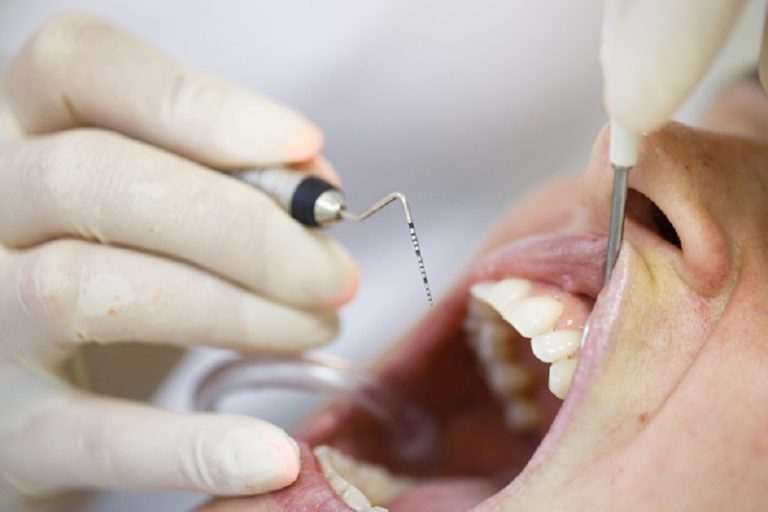Statistics show that adults in Australia have an average of 4.5 missing teeth and, although tooth loss is not a natural part of the ageing process, here in Australia it is very common with more than a third of senior patients over the age of 75 suffering from complete tooth loss.
Periodontal disease is one of the biggest threats to dental health.
What is periodontal disease?
Periodontal disease is a disease of the gums or the supporting structures of the teeth and as mentioned, is the most common cause of tooth loss in Australia. Periodontal disease mainly occurs as a result of poor dental hygiene and avoiding the dentist. It is important that you brush your teeth at least twice a day, floss at least once, maintain a healthy diet, avoid unhealthy lifestyle choices, such as smoking and visit the dentist on a regular basis. It is important that you visit your dentist at least once every six months, as well as your hygienist, to make sure that your teeth are clean and healthy and to remove excess plaque and tartar from the surface of your teeth and below the gum line where necessary.
Bacteria in the plaque and tartar release acids and toxins which inflame and damage your gums. Inflammation causes your body to send more blood to the affected area. This, in turn, can cause your gums to bleed when you brush your teeth as well as redness, swelling, and soreness. Over time the gums start coming away from your teeth, creating small pockets where more plaque and bacteria can build up. If you avoid the dentist, then these pockets may deepen, eventually weakening the bones and tissues that support and protect your teeth. Your teeth will become loose and eventually fall out.
What is a dental implant?
If you have lost a tooth as a result of periodontal disease, then you need to speak to your dentist and find out about replacing it sooner rather than later. One of the most popular methods of tooth replacement is with a dental implant Melbourne. A dental implant Melbourne is a small, titanium screw that is inserted into the bone socket of your missing tooth and acts as a replacement tooth root. A dental implant Melbourne is strong, noncorrosive and biocompatible which means that it will integrate with your body without causing an adverse reaction. Titanium causes osseointegration to occur, which means that when the metal screw is inserted into your jaw, it will encourage osteoblasts which are bone forming cells to form around it and lock it securely in place. This screw can then only be removed by fracturing the bone. Therefore it becomes a permanent fixture in your mouth, which means it is ideal for tooth replacement. The implant itself acts as a foundation for the replacement tooth which can be a crown, a set of partial dentures or a set of full dentures, depending on how many teeth you are missing and need replacing. With a strong, fixed foundation your crown or dentures will look and feel like your natural teeth. If this sounds like what you are looking for then speak to your dentist and find out if you are eligible for a dental implant.
Dental implants for patients with periodontal disease
Dental implants have a success rate of 98%; however, different underlying conditions can affect this percentage. Therefore, your Dentist will need to make an informed decision of whether or not dental implants are suitable for you. Periodontal disease must be treated before you can undergo dental implant surgery. Firstly, your teeth and gums will need to be cleaned thoroughly by undergoing deep scaling and root planing with your hygienist. This removes bacteria, plaque, and tartar from your teeth, below your gum line, and from the roots of your teeth as well. You may require a course of antibiotics at the same time or after your procedure. After this, you may require a gum graft which is used to strengthen receding gums and support your teeth successfully. Once the Dentist is happy that periodontal disease is under control, you can prepare for dental implant surgery. Once you have undergone the surgery it is essential that you maintain excellent dental hygiene and visit the dentist on a regular basis to make sure that your gums remain strong and healthy so that your replacement teeth can last for the rest of your life. Speak to your dentist today to find out more about treating periodontal disease and whether or not you can replace your missing teeth with dental implants. Dental implants are highly beneficial and although it may seem like a lengthy process, it is worth the effort.
Disclaimer
Any surgical or invasive procedure carries risks. Before proceeding you should seek a second opinion from an appropriately qualified health practitioner.


Comments are closed.